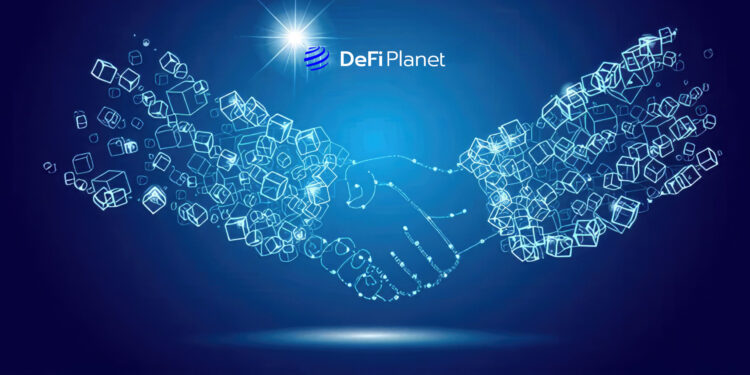Last updated on March 4th, 2025 at 12:00 pm
Cryptocurrency exchanges are the primary gateways to the crypto economy. They enable users to trade, invest, and explore the digital asset ecosystem. However, the accessibility of these platforms varies dramatically across the globe due to differing regulatory stances. Some regions embrace crypto with clear licensing frameworks, while others impose restrictions or outright bans. This patchwork of rules creates a complex landscape for both users and exchanges.
This article examines how regulatory environments shape crypto exchange accessibility worldwide, categorizing them into three main zones: licensed markets, restricted regions, and areas with mixed approaches.
Legal Zones and Licensed Markets
In jurisdictions categorized as licensed markets, crypto exchanges operate legally under specific regulatory frameworks. These regions aim to foster innovation while safeguarding consumers through measures such as anti-money laundering (AML) requirements, know-your-customer (KYC) protocols, and strict licensing standards.
Key licensed markets include:
1. European Union (EU)
The EU leads with harmonized regulations under the newer Markets in Crypto-Assets (MiCA) framework and earlier directives like AMLD5. These rules aim to enhance transparency, combat money laundering, and protect consumers.
While member states follow these overarching guidelines, some countries are especially crypto-friendly. Estonia, Malta, and Luxembourg have attracted major exchanges like Binance, Kraken, and Coinbase with streamlined licensing procedures.
2. Gibraltar
Gibraltar’s Digital Ledger Technology (DLT) framework, overseen by the Gibraltar Financial Services Commission (GFSC), balances innovation with robust oversight. This jurisdiction is home to exchanges like eToro, KuCoin, and Kraken, known for compliance with its high regulatory standards.
3. Canada
In Canada, crypto exchanges are treated as financial entities and must register with the Financial Transactions and Reports Analysis Centre of Canada (FINTRAC). This ensures compliance with AML laws and consumer protection mandates. Notable platforms include Newton, NDAX, and Kraken.
4. United Arab Emirates (UAE)
The UAE is becoming a regional hub for crypto innovation, regulated by entities such as the Securities and Commodities Authority (SCA) and the Dubai Financial Services Authority (DFSA). Exchanges like Binance, OKX, and Bybit operate here under strict AML and KYC guidelines.
5. Australia
Australia legalized crypto exchanges in 2018, requiring registration with AUSTRAC and adherence to AML rules. This clear framework has enabled platforms like Swyftx, CoinSpot, and Kraken to thrive in the region.
6. Singapore
Singapore has a friendly approach toward crypto exchanges but maintains strict rules. Its Payment Services Act of 2019 requires exchanges to secure licenses from the Monetary Authority of Singapore (MAS) and adhere to AML guidelines. Exchanges like Gemini, Crypto.com, and Bitget have successfully met these requirements. This has made Singapore a popular hub for exchanges looking for a supportive yet structured environment.
7. Japan
Japan’s proactive regulation followed the infamous Mt. Gox collapse, with the Financial Services Agency (FSA) implementing strict licensing rules, cybersecurity measures, and AML requirements. Prominent exchanges include Bitget, Coincheck, and Binance.
RELATED: Why the Crypto Community Still Worries About Mt. Gox Collapse
8. South Korea
South Korea enforces unique AML compliance by requiring exchanges to partner with local banks for real-name bank account verification. Top exchanges like Upbit and Bithumb dominate the market under these rules.
9. Nigeria
In 2024, Nigeria introduced a new licensing framework under the Securities and Exchange Commission (SEC). Local exchanges like Quidax and Busha now operate legally, offering hope for broader crypto adoption across Africa.
RELATED: From Bans to Licenses: Nigeria’s Crypto Journey in 2024
Restricted Regions
In stark contrast to licensed markets, some countries impose heavy restrictions or outright bans on crypto exchanges. These decisions often stem from concerns over financial stability, illicit activities, or lack of government control over decentralized systems.
China
China has maintained a comprehensive ban on crypto trading and exchanges since 2021. The People’s Bank of China (PBOC) cites risks like capital flight and fraud as reasons for its hardline stance. Despite the ban, underground trading and offshore platforms remain active.
India
India’s regulatory stance is fraught with uncertainty. Although the Supreme Court lifted a banking ban in 2020, the government has oscillated between imposing heavy taxes and signalling a potential ban. Exchanges like WazirX tread cautiously as they await clearer guidelines.
Russia
Russia prohibits using cryptocurrencies for payments but allows ownership and trading. Exchanges face tight scrutiny under laws designed to prevent money laundering and protect the ruble. P2P platforms like LocalBitcoins are widely used despite restrictions.
Turkey
Turkey banned crypto payments in 2021, citing financial instability, though trading remains legal. Local platforms like BtcTurk and Paribu dominate the market as citizens increasingly turn to crypto amid high inflation.
Egypt
Egypt limits crypto activities through the Central Bank of Egypt, citing risks of capital flight and terrorism financing. Although trading is restricted, P2P platforms like Binance P2P serve as workarounds for enthusiasts.
Crypto regulation around the world. Source: ComplyAdvantage
Mixed Approaches: Regions with Varied Regulations or Evolving Stances
Some countries have yet to adopt a unified stance on cryptocurrency exchanges, leading to regulatory ambiguity. These regions often feature a mix of progressive policies, restrictive measures, and grey areas where compliance varies by jurisdiction or market conditions.
1. United States
The United States presents one of the most intricate regulatory landscapes for crypto exchanges. Federal agencies like the Securities and Exchange Commission (SEC) and the Commodity Futures Trading Commission (CFTC) play pivotal roles in determining the legality of crypto activities.
The SEC views many cryptocurrencies as securities, requiring exchanges to comply with strict registration processes, while the CFTC treats some assets, like Bitcoin, as commodities and enforces lighter regulations.
RELATED: The Great Debate: Are Cryptocurrencies Securities or Commodities?
However, state-level laws complicate matters further. For instance, New York enforces its own BitLicense requirements, while other states like Wyoming are more crypto-friendly. Major platforms, including Coinbase, navigate this patchwork of rules by registering with federal and state regulators.
2. Latin America
Latin America has emerged as a hotspot for cryptocurrency adoption, fueled by economic instability and currency devaluation. However, regulatory frameworks remain uneven:
- Mexico: The “Fintech Law” requires exchanges to register and comply with AML standards.
- Brazil: Introduced its crypto regulation law in 2023, setting clearer standards for exchanges but still leaving certain areas underdeveloped.
- Argentina: Despite its booming crypto usage, lacks formalized exchange regulations, leaving the market in a legal gray area.
Overall, this region’s regulatory approach varies, with some governments encouraging adoption and others tightening controls.
3. Africa’s Emerging Crypto Markets
Africa exhibits a mix of progressive and restrictive policies toward crypto exchanges:
- Kenya: Requires licensing through the Central Bank of Kenya (CBK), regulating crypto as part of its broader fintech strategy.
- Ghana: The Bank of Ghana and the Securities and Exchange Commission (SEC) regulate Virtual Asset Service Providers (VASPs) under clear AML and investor protection standards.
- South Africa: Mandates compliance with FICA and FAIS guidelines, emphasizing financial transparency and consumer safeguards.
4. Southeast Asia
Southeast Asia is a region of contrasts, with some countries embracing crypto while others take cautious or restrictive approaches:
- Thailand: Licenses crypto exchanges under its Securities and Exchange Commission with strict AML requirements.
- Indonesia: Recognizes cryptocurrencies as commodities, allowing trading but prohibiting their use for payments.
- Vietnam: Enforces a ban on crypto payments but allows trading with minimal regulation, creating an ambiguous environment for exchanges.
Challenges and Opportunities for Crypto Exchanges
The worldwide regulatory environment presents both hurdles and opportunities for cryptocurrency exchanges. One of the significant hurdles faced by industry players is the high compliance costs associated with stringent AML, KYC, and licensing requirements. These financial burdens can deter smaller players from entering licensed markets, creating barriers to entry that favour larger, well-established firms.
However, there are still very bright spots of promise. Emerging markets in Africa and Latin America present significant growth potential thanks to high rates of cryptocurrency adoption and the evolving regulations. Institutional adoption is another beacon of opportunity, as clearer regulatory frameworks in countries such as Japan, Australia, and those within the European Union attract institutional investors. This influx of investment not only signals a maturation of the market but also further legitimizes cryptocurrencies as a viable financial asset.
The Path Forward
The future of crypto exchange accessibility hinges on regulatory clarity and international cooperation. A few trends are worth noting:
- Global Standards: Organizations like the Financial Action Task Force (FATF) are pushing for uniform AML and KYC guidelines to streamline compliance worldwide.
- Decentralized Solutions: Decentralized exchanges (DEXs) are gaining traction as alternatives to centralized platforms, offering users privacy and autonomy in regions with restrictive regulations.
- Regulatory Sandboxes: Countries like Singapore, Bahrain, and the UAE are pioneering “sandbox” programs to test crypto innovations in controlled environments before rolling out formal regulations.
While progress is being made, the road ahead remains challenging. Governments must balance innovation and consumer protection, while exchanges must adapt to an ever-evolving landscape.
Final Thoughts
The regulatory landscape for crypto exchanges is as diverse as the technology itself, reflecting the priorities and concerns of individual nations. While licensed markets offer a path to legitimacy and trust, restricted regions reveal the scepticism and risks associated with digital assets. Meanwhile, mixed-approach regions highlight the growing pains of crypto adoption.
As the crypto market continues to expand, staying informed on global regulations is crucial for users, investors, and businesses alike. The interplay between innovation, compliance, and enforcement will shape the accessibility of crypto exchanges—and, by extension, the future of cryptocurrency itself.
Disclaimer: This piece is intended solely for informational purposes and should not be considered trading or investment advice. Nothing herein should be construed as financial, legal, or tax advice. Trading or investing in cryptocurrencies carries a considerable risk of financial loss. Always conduct due diligence.
If you want to read more market analyses like this, visit DeFi Planet and follow us on Twitter, LinkedIn, Facebook, Instagram, and CoinMarketCap Community.





















